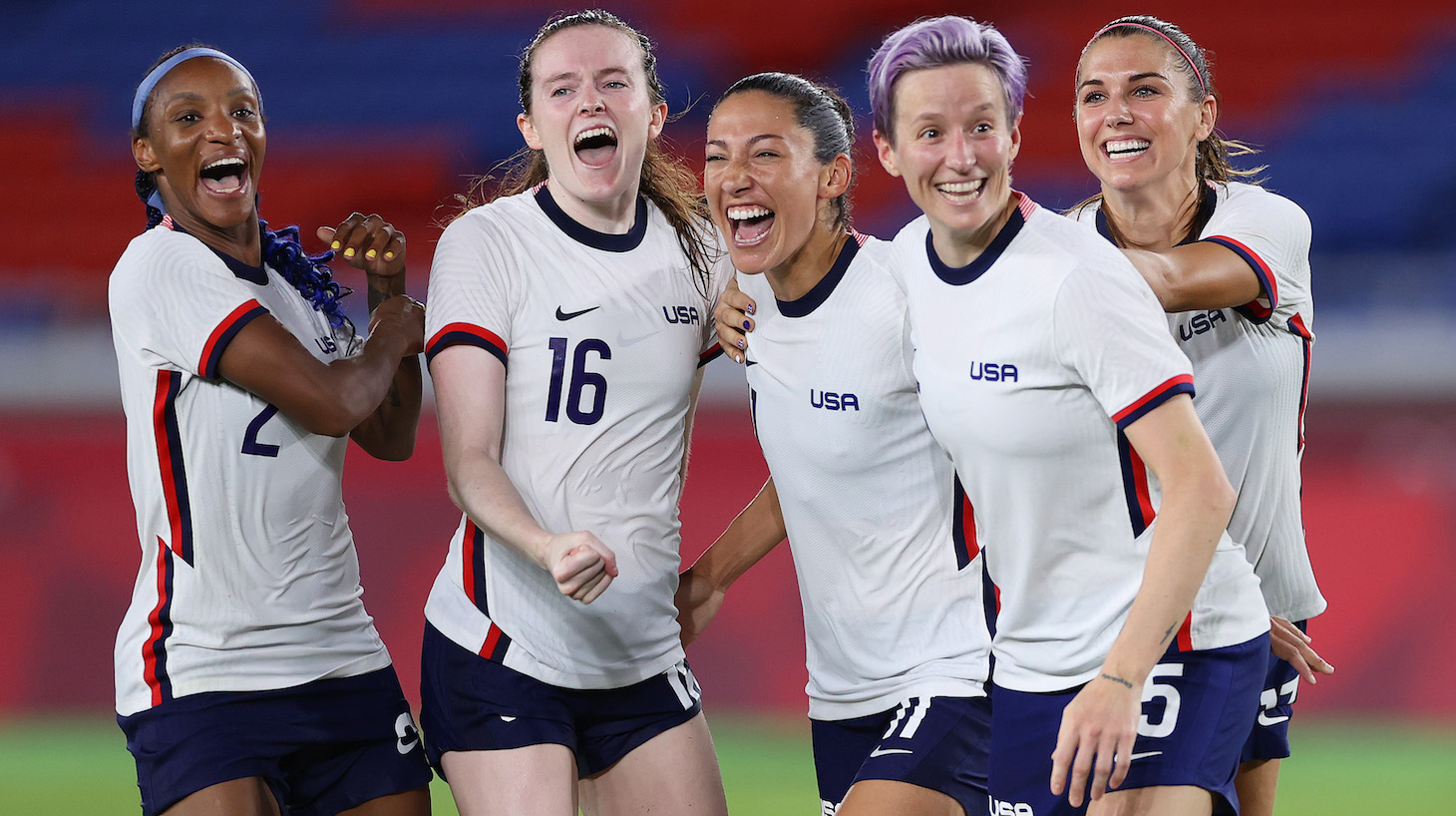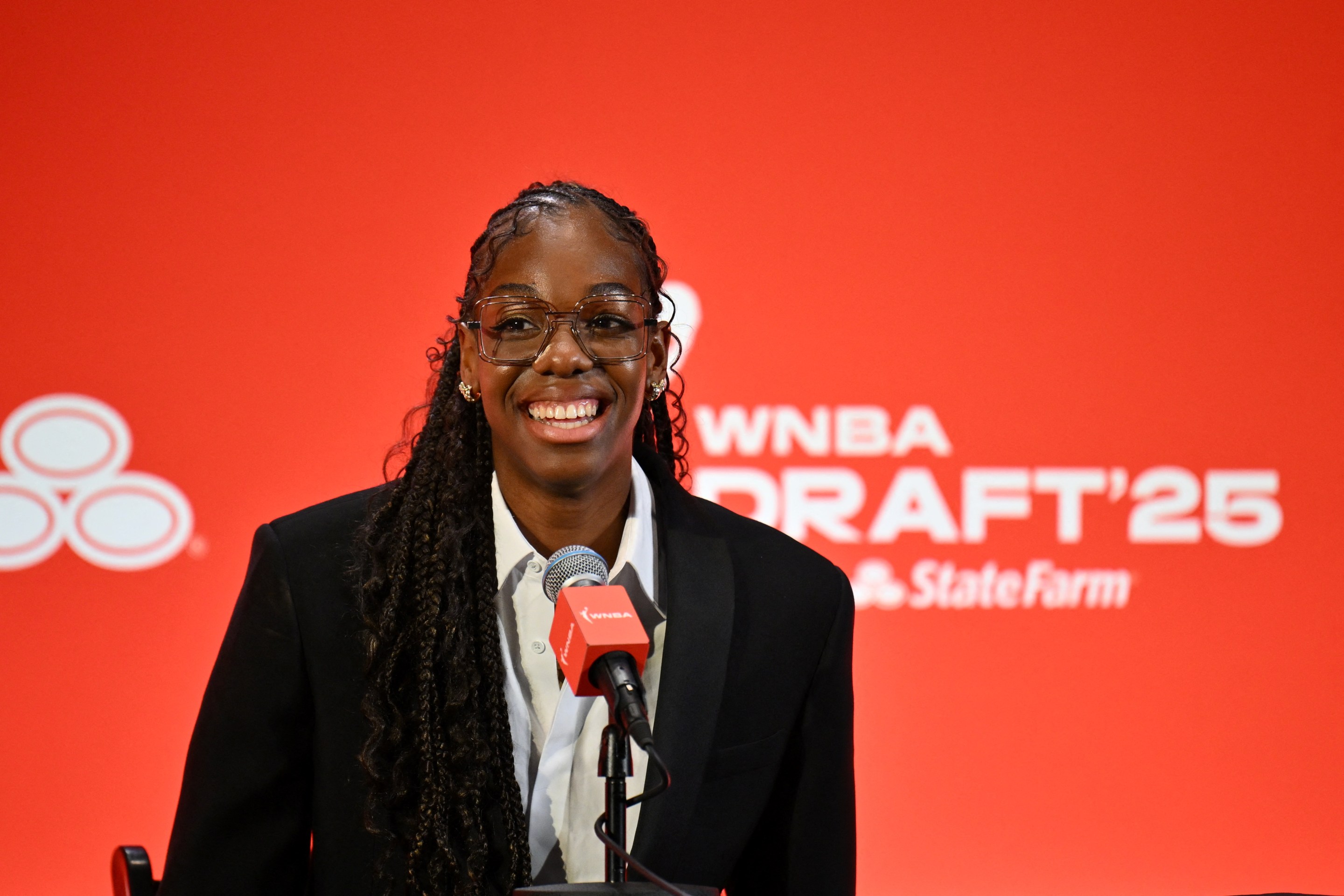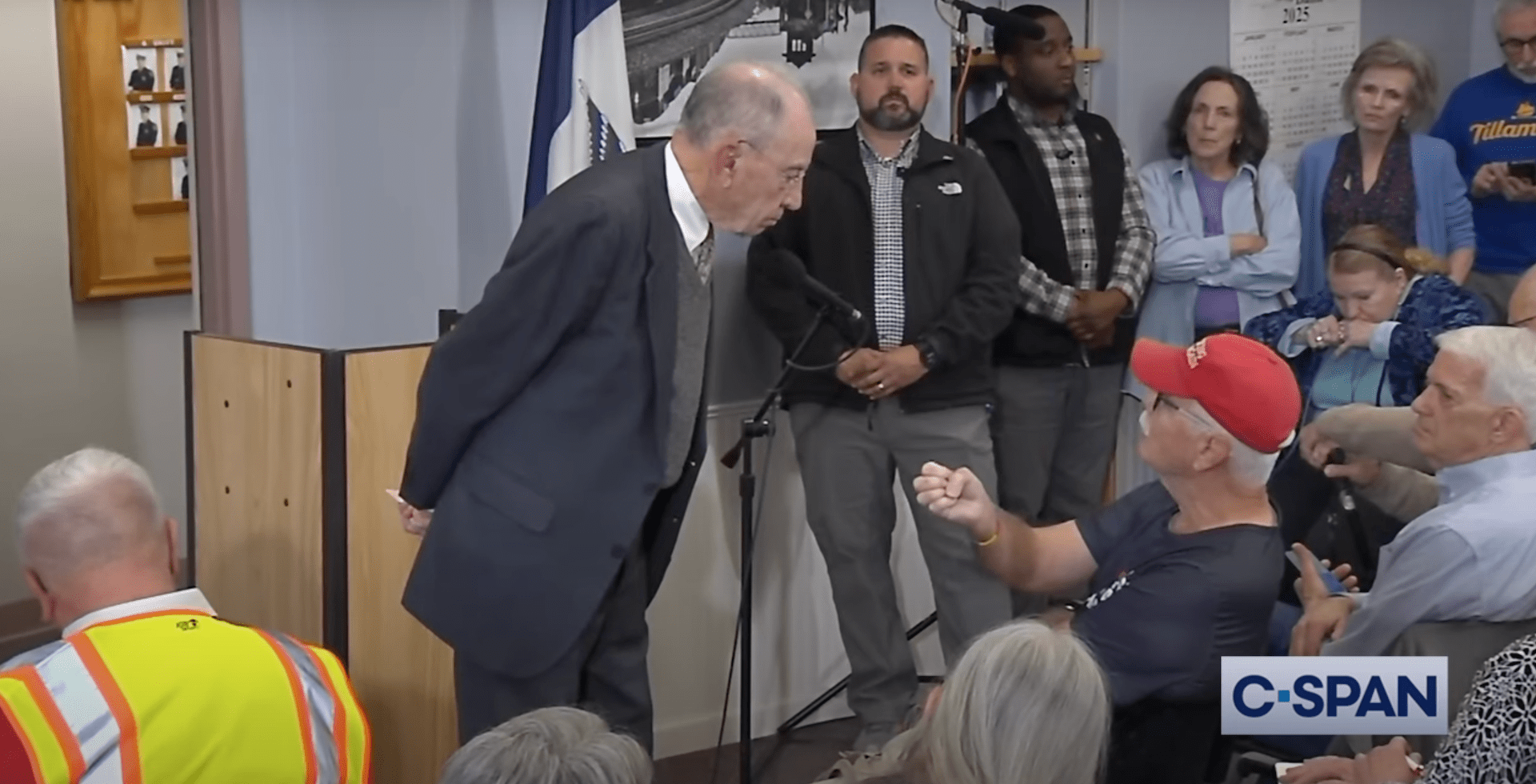After a shaky group stage that saw the USWNT hit for the results cycle, earning a loss, a win, and a draw, it felt like the Americans would need to make significant improvements in order to get past a fearsome Netherlands team in the quarterfinals and continue their march toward Olympic gold. As it turned out, that wasn't the case. Though the Americans did play a little better on Friday, they still were nowhere near their best. Thankfully, they were able to ride that moderately improved play, a mostly unremarkable performance from their opponents, a handful of huge stops by the goalkeeper, and more than a little luck to win the match on penalty kicks and advance to the semis.
The first hour-ish of play was where the USWNT most clearly demonstrated improvement from their earlier matches in Tokyo. After struggling to keep hold of the ball against Sweden and Australia, the U.S. was much better at controlling the tempo of the game by maintaining possession. After routinely leaving the door to keeper Alyssa Naeher's penalty box wide open to dangerous counterattacks, the U.S. did a great job at preventing the Dutchies' sensational attackers from getting many opportunities on the ball and in space. And while the U.S. still lacked fluidity and creativity (especially with stargirl Rose Lavelle starting the match from the bench, annoyingly) near the Netherlands' area even during that good stretch, they nevertheless managed to find the back of the net twice, thanks to some nice work by Lynn Williams, who was the best American outfield player during her 57 minutes on the pitch.
However, the Netherlands is one of the few teams in the world that a USWNT running at 75 percent can't just steamroll. This is why, after the U.S.'s decently impressive opening hour of play, the Dutchies—who were themselves well short of their best—were still right in the thick of the match with the score tied at 2–2. Mostly, this was because of Vivianne Miedema. Miedema is a total freak. She has those Ibrahimovician qualities of being huge, strong, agile, an assassin in the box, having ridiculous touch and control, and giving you the feeling that she's milliseconds away from scoring whenever the ball comes to her. Like, the U.S. really did do a fine job of limiting her chances for an hour or so, and yet she still knocked in two goals from pretty much out of nowhere. When Miedema is on her bullshit, as she has been all tournament, scoring 10 (!!) goals in just four (!!) matches, even the USWNT's pretty good isn't good enough.
Around the time Miedema scored her second goal, the momentum of the match took a turn in the Oranje's favor. The Americans began to tire, and the Dutchies began to find their footing. Miedema's teammates were able to get her the ball more often at the start of possessions, and with her silky touch and reading of the game, she directed more consistent and better attacks from the front. Substitute Lineth Beerensteyn helped a lot in the Netherlands' efforts after coming on in the 63rd minute, giving the U.S. nightmares when she came hurtling down the wing toward the exhausted and out-paced American defense. Miedema, Beerensteyn, and midfielder Danielle van de Donk regularly combined with each other in the final third, and the U.S. has fortune as much as anything else to thank for none of those three marking their period of ascendence with a goal.
Once the Netherlands wrested control of the match, they didn't relinquish it for the rest of normal play. For the final half hour of regulation on through the 30 minutes of extra time, the Dutch were clearly the better team. The Netherlands had a golden chance to score what would've been a deserved winner after Kelley O'Hara took down Beerensteyn in the box to give the Oranje a penalty with only about 10 minutes left in regulation, but Lieke Martens's poor attempt was saved by Naeher. (Martens was the game's big disappointment. In her pomp, she's one of the best players on the planet, and by sheer talent she was probably the second best player on the entire pitch, behind only Miedema. But she had a complete stinker of a match.) The game became more and more stretched and open as the minutes piled up, which did give the U.S. their fair share of counterattacking opportunities. In fact, the U.S. scored two apparent goals in extra time that were ruled out for offside, to go with two disallowed goals in regulation play, which gives the USWNT a total of nine disallowed goals all tournament. (That stat is a little misleading, because of how referees delay offside calls now in the VAR era, but it's still pretty crazy.) Nevertheless, the Netherlands (who also had an extra time goal ruled out for a close offside) remained the better team on the whole, but couldn't quite get that one last strike to seal it.
And so the oddly compelling but not especially well-played match went to penalties, and the Americans prevailed, thanks to another couple big stops from Naeher. Penalties are never a particularly satisfying way to end soccer games, and while I'd argue the (slightly) more impressive team lost, the result feels fair enough in light of the U.S.'s perfectly solid first half and the Netherlands' failure to take their chances.
Regardless, it does seem like a coherent story has started to emerge from a USWNT tournament that had thus far been so strangely unmoving that it was hard to know what to think about it. After four matches that featured one comprehensive win, one comprehensive defeat, one bland draw, and one decent but sort of lucky penalty shootout victory, it's clear that this isn't the next great USWNT. The squad is old (the average age of the starting lineup was 31, and the ages of the four substitutes manager Vlatko Andonovski turned to to inject some fresh energy into the match were 26, 32, 32, and 36), slow, and tired, but also proud, extremely well-decorated, and still damn good. Many of the faces leading the team today are the same ones that have achieved incredible success over the past decade, during the most competitive era of women's soccer ever—a competitiveness the USWNT deserves enormous credit for helping build, by proving that women's soccer can be great, entertaining, captivating, and wildly popular if only the powers that be would believe in and fund the sport. This is probably—hopefully—the last big hurrah for that generation, as it's hard to imagine the likes of Carli Lloyd, Megan Rapinoe, Alex Morgan, Tobin Heath, Christen Press, Becky Sauerbrunn, and Kelley O'Hara playing such key roles at the 2023 World Cup, when they will all be in their mid-to-late 30s (except for Lloyd, who will be 41!!).
Those ladies aren't quite what they used to be, and neither is the sport itself. The current iteration of the USWNT isn't as good as before, and its opponents are better than ever. Even so, until another country knocks out the back-to-back reigning World Cup winners and holders of three of the last four gold medals, or until the next generation of American players bumps the old heads off the roster, these old-timers are going to keep fighting for wins and trophies and medals, the same as always. It might not be pretty, but even an ugly gold is still golden.






